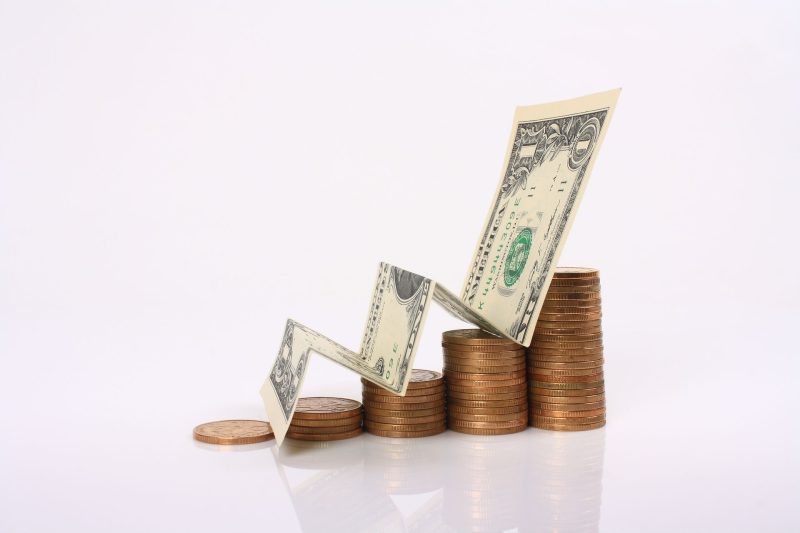With Fed Rate Cuts Expected, Should You Sell Your House or Wait?

Residential living in the UK
The Federal Reserve is expected to announce Wednesday that it is cutting the fed funds rate, a key overnight bank lending rate that impacts other interest rates, for the first time in four years. The housing market has stalled for some time with sellers reluctant to let go for a variety of reasons including high mortgage rates. With interest rates starting to slide, is now a good time to sell your house?
The question to sell or not is a concern of many homeowners. One reason some may have felt reluctant is that selling now would mean giving up a lower-rate mortgage obtained previously and taking on a higher-rate mortgage to buy a new home. However, a new survey by Fannie Mae suggests that mortgage rates may not be as big an issue as first suspected. Low inventory, inflation and high house prices are also reasons why homeowners are hesitant to sell right now.
The number of homes sold in the U.S. declined in 2023, after a sharp rise in 2021. Transactions in 2021 totaled 6.12 million. In 2023, that number slipped to 4 million, according to the January 2024 Economic Outlook from the National Association of Realtors (NAR). However, the NAR expects sales to reach 5.6 million in 2025, indicating a recovering market.
At its meeting on September 17-18, the Federal Reserve, the nation’s central bank, is expected to cut rates for the first time since 2020. Fed rate changes largely impact short-term interest rates. Mortgage rates, on the other hand, are heavily tied to long-term bond yields, so even a small rate cut can open up opportunities for sellers, but also create challenges.
There are plenty of reasons why selling your home may be necessary, whether you landed a new job across the country or want to move closer to family, or maybe you’re nearing retirement age and want to downsize. If you’re on the fence about selling, weigh your options and understand the market before changing your address.
Current housing market conditions
In October 2023, mortgage interest rates reached 8%, a number not seen in more than 20 years. In mid-August, rates were down from that threshold, at just over 6.5% for a 30-year fixed-rate mortgage. Right now, mortgage rates are holding steady in the 6% range. Such high interest rates may make selling less than ideal, for now.
On the other hand, low inventories and a competitive market may mean greater profits for homeowners who are willing to sell now. “While inventory has increased over the past year, it still remains below normal levels, favoring sellers, says Mike Pappas, CEO at the Keyes Company. “Interest rates have dropped by one percent from their high of 7.4% and are now in the low 6% range as the market responds to lower inflation rates.”
However, as mortgage rates are generally based on treasury yields, a 30-year mortgage should be around 5.65%. Yet, due to inflation uncertainty, there is a 0.5% hedge in the market. Pappas adds, “Not to mention that for every 1% drop in interest rates qualifies an additional five million potential homebuyers at the lower rate.”
Surging home prices keep sellers on the bench
The price of a home is up an average of 50% from 2019, according to S&P Global. As a result, the median sale price for an existing home hit $426,900 in June 2024, according to the National Association of Realtors (NAR). This may be why 81% of consumers believe it’s a bad time to buy (or sell) a house, according to the Fannie Mae Home Purchase Sentiment Index released in July 2024.
But even as inflation slows, the decision to sell a house isn’t easy, especially in an unpredictable market. “Lower interest rates make mortgages less expensive, which can create more buyers for available housing,” says Patricia Watson, Professor, East Boston School of Business at American Public University System. “With increased demand and limited supply, home prices are likely to rise further.
“If buyers stayed in their homes for the life of the mortgage, selling now might be a good decision; however, most buyers stay an average of seven years,” Watson adds. That means that while decreased rates can reduce the price of a mortgage, rising home prices could erase any savings, making houses more expensive than when rates were higher.
How mortgage rates impact sellers
In March of 2022, the Federal Open Market Committee (FOMC) started increasing the federal funds rate in response to rising inflation. The committee hiked rates 11 times before finally stopping. Those rates haven’t changed since July 2023 and continue to stubbornly hover around 5.50%.
Then again, mortgage interest rates have already dropped ahead of the Fed’s September 2024 meeting. The average interest rate on a fixed-rate 30-year loan in mid-August was just over 6.5%, but on September 12th, the rate was 6.20%, making this a better time to sell than even one month earlier, based on mortgage rates alone.
Homeowners with home equity lines of credit (HELOCs) or adjustable-rate mortgages (ARMs) should see savings right away as interest rates drop. And, anyone who bought their home when rates were higher may finally enjoy a significant benefit from refinancing. In the same way, homeowners who feel shackled by their current mortgage may be more willing to sell now.
Should you sell your home now?
Although selling is a personal decision, these three reasons may tip the scale in favor of selling now.
1. Interest rate cuts
Falling interest rates nearly always create a favorable market for sellers, stimulating buyer demand and potentially expediting the sales process. And, as more potential buyers enter the market, sellers may find themselves in a stronger negotiating position, potentially closing deals more rapidly while also securing better terms.
Pappas adds that homeowners who have stayed in their homes due to low mortgage rates may finally decide to sell. “This is especially true if they can downsize and secure a relatively low mortgage, if rates drop significantly. This could help increase supply for first- and second-time home buyers, which could add stability to the prices.”
2. Changes in real estate commissions
The cost of selling a home may decline as a result of the new real estate commission changes being implemented by the National Association of Realtors, following a 2023 decision over the way real estate agents were compensated. Besides, competition, whether among agents or between listed properties can result in stronger negotiations, increased home prices and faster sales.
3. Favorable market conditions
Increased buyer competition and the potential for stronger negotiations makes now an ideal time to capitalize on the market’s momentum. By taking a proactive stance, you can potentially benefit from higher selling prices, while also avoiding future market downturns that may impact the value of your property. “With inventory still tight, more buyers competing for fewer homes could drive up prices and possibly reignite bidding wars, said Faron Daugs, Certified Financial Planner, Founder & CEO at Harrison Wallace Financial Group.
“When the Fed begins cutting rates, we could see a spike in housing prices. The impact will largely depend on the current level of inventory,” Daugs adds. “For cash buyers, now might be a good time to consider selling. However, if you need a mortgage, you may be moving from a very low rate to a higher one; although it will likely be lower than rates from a year ago.”
Should you wait and sell your home until later?
Although there are several good reasons for selling now, prospective sellers might want to hold off listing their homes for other reasons, including:
1. Stubborn inflation
While the Feds rate cut can help stimulate buyer demand and the opportunity to potentially benefit from higher selling prices, inflation still looms in many other areas of daily life. Add in other costs to sellers, including closing costs and taxes, and the fact they may have a hard time finding a home to move to in their price range, and you have a sort of double whammy for sellers.
2. You’ve just refinanced your mortgage
Even with a Fed cut, refinancing isn’t a good move if you plan to sell in the next few years. That’s because it’ll take you too long to break even on the costs that come with refinancing. Closing costs usually range from 2% to 5% of the value of your mortgage and are paid in addition to your down payment. So, on a home purchased for $300,000, closing cost can range anywhere from $6,000 up to $15,000.
3. You need to make major repairs
If you have a long list of repairs to your home, you may want to hold off selling until those repairs can be made, or until your budget allows it. For example, the average cost to replace 10-15 windows in your home can be between $4,500 – $22,500, according to Homeguide. The cost of a major repair to a roof can be anywhere from $3,000 – $6,000.
Bottom line
Frank Lietke, Executive Director and President of Ally Invest Securities at Ally Bank offers this advice, “Even as inflation changes level off, consumer purchasing power is about 20% less than it was four years ago and is stuck at a record low level in the United States. Take a look at your expenses and cut out any unnecessary costs, negotiate and shop for better values, pursue a side hustle or invest your cash. When the rate changes, there’s an underlying impact on your cash, your savings, credit card balances and more, so focus on those instead.”
Still now sure if now is the best time to sell? Check out Your Best Time to Sell a Home in 2024 Is Now for insight.







